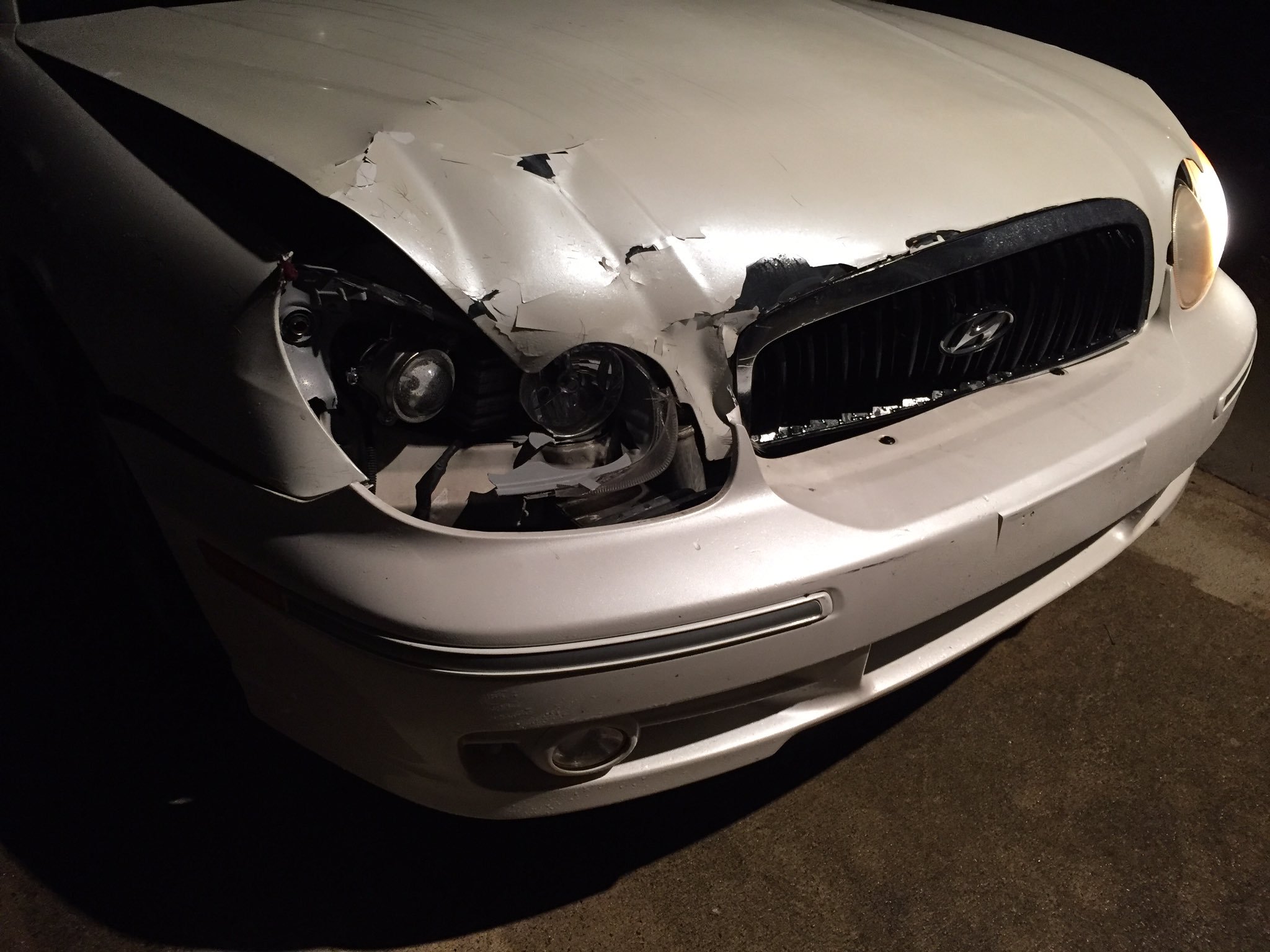Have You Totaled Your Ministry Team?

In a recent post I mentioned my beloved thirteen year old Hyundai Sonata and all of her character issues: a door clicker that doesn’t work, floor mats that look like a cat gave birth on ’em, an odometer that is rapidly nearing 200,000 miles. For all of her flaws, I loved that car, and planned on driving it as long as I could.
Until Bambi.
That’s right: exactly six days after the post went live, the biggest Goliath-style deer I’ve ever seen-but-not-seen-quickly-enough brought my 200k quest to an end. While the car is still technically drivable, it’s completely totaled. And now that Christmas at DPAC and holiday travel has come to a close, the dreaded Craigslist search begins.
But did I mention that it’s technically drivable? Because that’s exactly what I’ve been doing for the last month: technically driving that thing from Point A to Point B, lighting my way with the one headlight that Bambi didn’t destroy. I’ve noticed, however, that I have a completely different attitude about driving a car that that will soon be scrap metal vs. driving a car that still has a few miles left on her. Squeaky, streaky windshield wipers are an annoyance, but not something I’m going to pay to replace. A spilled drink in the front seat doesn’t necessitate a quick stop to mop up the mess. I’m 1,000 miles past a needed oil change, but why invest thirty bucks in a dead man walking? I haven’t been through a car wash since the accident, because (a) who cares, and (b) I’m afraid the brushes will knock off not only the deer fur, but the pieces of the car that fur is embedded in. But the most fun has to be parking garages (just keep backing up until you can’t, no rear view mirrors required) and encountering other drivers (people tend to give you the right of way, because they figure you’ve got nothing to lose).
As I was ignoring the latest spilled drink puddling up in the passenger seat, I couldn’t help but draw parallels between giving up on a car and giving up on an area of ministry. Maybe you’ve been there: you know that a lot of work needs to be done, but it’s easier just to quit it all and start over. The crunched fender of previously smooth systems seems too costly to repair, so why not just junk it and go with something new? The smell of burned out volunteers catch your attention, but do you really have the time or energy to make it better?
That attitude may be fine with a depreciating vehicle, but maybe not so fine for ministry areas with eternal implications. Here are five questions that will help us gauge whether or not we’ve totaled our area of ministry:
1. Have I taken the time to assess the damage? I didn’t know for sure that my car was totaled until a professional estimator told me so. Have you taken an honest look at what’s happening under the hood? Do you know where to go from here?
2. Have I stopped caring about basic maintenance issues? For me, it’s oil changes. For ministry areas, it’s ignoring volunteer training, or quality control, or systems improvement.
3. Do I want to / need to clean it up? If your ministry area is totaled, no amount of polish or shine will mask the crunched frame.
4. Have I already started looking towards the next thing? My mind is now less on the car I have, and more on the car I’ll get. If you’ve given up on the initial fascination and challenge of your ministry area, it’s going to show.
5. Have I abandoned hope? Once the word “totaled” came out of the estimator’s mouth, there was nothing more to be done except to wait on an insurance check and send the old car to the junkyard. If you’ve lost hope in your ministry, you will find yourself looking for ways to just get it over with and let it die.
There’s a huge difference in totaling a car and totaling a ministry: cars reach a point of no return. Ministries can find new life. No matter how hopeless the volunteer drought, how convoluted the systems and structures, or how out of date your resources feel, you can see things shine again. As a new year begins, take stock not only of your ministries, but your emotional investment in those ministries. Is it really time to total ’em?
